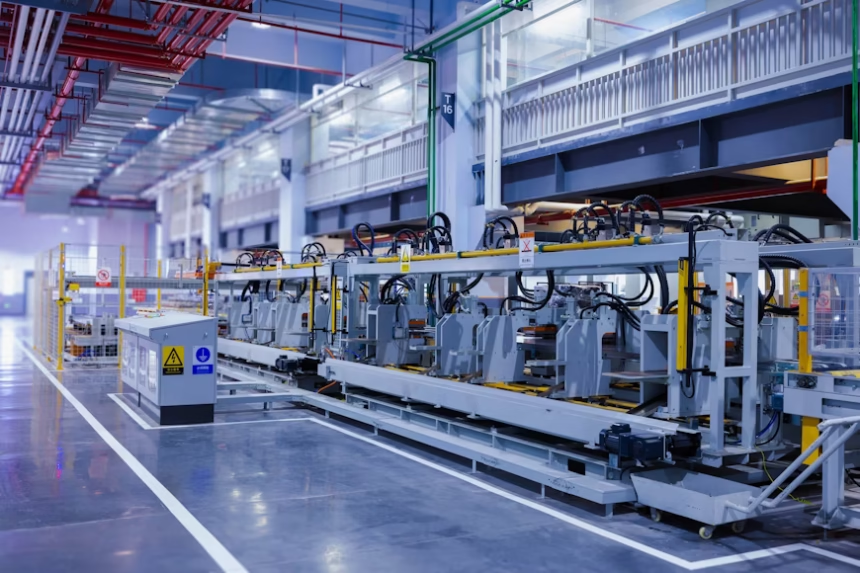In a world where industry efficiency is at a premium, smart industrial automation is changing the scene. Businesses have begun to realize how intelligent systems can assist in achieving higher efficiency without overhauling existing structures. Flexible operations have become the name of the game, with teams needing to reposition themselves swiftly to maintain market relevance. The need not only to save money but also to increase productivity is becoming а pressing challenge, where automation emerges as a sustainable solution. In so doing, the advancements in automation are not just simplistic enhancements but rather profound enablers of future attainment and smartly directed growth.
Building Efficiency in Industrial Operations
Smart automation is playing a significant role in helping businesses to significantly reduce wastage and improve operation efficiency. By automating repetitive tasks, machines reduce a large part of the human input and substantially speed up the production process. The use of such advanced systems ensures a particular standard of output is maintained, which in turn secures customer satisfaction. Furthermore, it enables businesses to respond quickly to production requirements thereby minimizing idle times. It offers uniformity in all operations since automation ensures that human error has been reduced. In this manner, not only do daily operations become efficient, but they also become more predictable and less labor intensive.
Enhancing Workplace Safety and Reliability
With smart industrial automation, safety becomes a priority in industrial workplaces. Updated smart technology makes it possible to quickly detect risks in perilous environments, creating a workplace that remains consistently safe. Similarly, automated equipment monitoring systems using Internet of Things (IoT) sensors frequently perform checks, paving the way towards promptly identifying and resolving equipment issues. Such systems assure safer conditions by limiting human exposure to harmful environments. By integrating early warning systems, downtime is reduced, and production is less disrupted. When an automated system is employed, the entire workplace becomes more accountable and risk averse in nature.
Supporting Business Growth and Flexibility
Businesses can precisely scale operations with the aid of smart industrial automation. This means that the businesses will be able to increase their production size without spending a lot of money. It enables businesses to be more adaptable to dynamic markets and generate more or less output when demand is a fluctuating factor. Smart systems allow the installation of additional equipment or the extension of operation areas without any significant disruptions. The remote systems in automation give managers more control over the entire manufacturing process. Pioneering businesses understand that this flexibility positions them favorably to tackle incoming business challenges effectively and succeed.
Smart Tools for Data and Decision Making
With intelligent industrial automation, data becomes an actual asset and raw power. A collection of data analytics and operations yields essential information concerning unforeseen patterns, defects, or major bottlenecks in the process. Smart automation not only guarantees immediate access to system performance but also provides real-time monitoring of every key parameter in quality assurance. For example, SCADA software offers an overview of the whole operation, by boosting control and improving reaction times. This transparency helps managers to make decisions in real time. In addition, continuous recorded information and predicted analytics also assist in better strategic plans.
Connecting Different Parts of the System
A significant merit of smart industrial automation is its control of various processes in the manufacturing plant. By linking devices, machines, and processes together, a coherent production line is established. Such systems empower seamless communication among departments achieving better consistency and quick teamwork. Improved supply chain tracking results from automated and interconnected operations which in turn bolster the response to customer needs. The transfer of goods and materials is carried out smoothly across the assembly lines as the automation techniques make these transitions seamless and fast. This integration increases productivity and unifies the production process across teams.
Conclusion
Smart industrial automation is at the core of meaningful innovation in the industrial sector. Progressive enterprises adopt these systems not only for productive or consistent campaigns but also to position themselves for prospective demands. They are streamlining their operations, making them primed for being more adaptable, safer, and driven by real data. These flexible systems enables а business to tackle contemporary operational challenges with confidence and tenacity while preparing for the future. With the growing acceptance of scalable automation, it is anticipated that it will bring about numerous positive changes and long-term sustainability in business.









